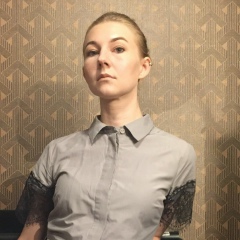Есть две категории вопросов, которыми может задаться человек.
1. Как всё устроено?
2. Что мне делать?
За редким исключением, поиски правдивого ответа на первый вопрос лишь усложняют задачу определения ответа на второй.
Обретение знания в моменте приносит удовольствие, на длинной же дистанции основным плодом становится высокомерие. Привычку стремиться к новым знаниям не зря сравнивают с наркотической зависимостью — полагаю, механизмы весьма схожи. Как ни странно, существенным побочным эффектом тяги к объективному знанию становится потеря связи с реальностью. С социальной реальностью, которая является первичной для любого человека. Да-да, для социального животного первично стадо, а не луг, на котором оно пасётся.
Ответы на второй вопрос лучше продаются, ибо пользуются несравненно большим спросом. Чем меньше времени вложено в исследование объективной реальности, тем более простыми и удобными иллюзиями можно удовлетворить страсть и страх второго. Все мы в любом случае живём в иллюзии, просто кому-то удаётся подружиться с менее энергозатратными сказками, а кому-то — нет.
Во второй части "Смотрителя" Пелевина есть великолепный момент: группа "медиумов", единственных во всей иллюзорной утопии Идиллиума работающих с материальной реальностью нашего мира, чья профессиональная болезнь — отравление информацией. Именно так, отравление информацией.
Берегите свои иллюзии, если они помогают вам жить.
1. Как всё устроено?
2. Что мне делать?
За редким исключением, поиски правдивого ответа на первый вопрос лишь усложняют задачу определения ответа на второй.
Обретение знания в моменте приносит удовольствие, на длинной же дистанции основным плодом становится высокомерие. Привычку стремиться к новым знаниям не зря сравнивают с наркотической зависимостью — полагаю, механизмы весьма схожи. Как ни странно, существенным побочным эффектом тяги к объективному знанию становится потеря связи с реальностью. С социальной реальностью, которая является первичной для любого человека. Да-да, для социального животного первично стадо, а не луг, на котором оно пасётся.
Ответы на второй вопрос лучше продаются, ибо пользуются несравненно большим спросом. Чем меньше времени вложено в исследование объективной реальности, тем более простыми и удобными иллюзиями можно удовлетворить страсть и страх второго. Все мы в любом случае живём в иллюзии, просто кому-то удаётся подружиться с менее энергозатратными сказками, а кому-то — нет.
Во второй части "Смотрителя" Пелевина есть великолепный момент: группа "медиумов", единственных во всей иллюзорной утопии Идиллиума работающих с материальной реальностью нашего мира, чья профессиональная болезнь — отравление информацией. Именно так, отравление информацией.
Берегите свои иллюзии, если они помогают вам жить.
There are two categories of questions a person may ask.
1. How is everything arranged?
2. What should I do?
With rare exceptions, the search for a true answer to the first question only complicates the task of determining the answer to the second.
Gaining knowledge in the moment brings pleasure, arrogance becomes the main fruit at a long distance. The habit of striving for new knowledge is not in vain compared with drug addiction - I think the mechanisms are very similar. Oddly enough, a significant side effect of the craving for objective knowledge is the loss of connection with reality. With a social reality that is primary to any person. Yes, yes, for a social animal, the herd is primary, and not the meadow on which it grazes.
The answers to the second question sell better, because they are incomparably in great demand. The less time invested in the study of objective reality, the more simple and convenient illusions can satisfy the passion and fear of the second. In any case, we all live in an illusion, just someone manages to make friends with less energy-consuming tales, and someone does not.
In the second part of Pelevin's “Ranger” there is a magnificent moment: a group of “mediums”, the only ones in the entire illusory utopia of Idyllium working with the material reality of our world, whose occupational disease is information poisoning. That's right, information poisoning.
Protect your illusions if they help you live.
1. How is everything arranged?
2. What should I do?
With rare exceptions, the search for a true answer to the first question only complicates the task of determining the answer to the second.
Gaining knowledge in the moment brings pleasure, arrogance becomes the main fruit at a long distance. The habit of striving for new knowledge is not in vain compared with drug addiction - I think the mechanisms are very similar. Oddly enough, a significant side effect of the craving for objective knowledge is the loss of connection with reality. With a social reality that is primary to any person. Yes, yes, for a social animal, the herd is primary, and not the meadow on which it grazes.
The answers to the second question sell better, because they are incomparably in great demand. The less time invested in the study of objective reality, the more simple and convenient illusions can satisfy the passion and fear of the second. In any case, we all live in an illusion, just someone manages to make friends with less energy-consuming tales, and someone does not.
In the second part of Pelevin's “Ranger” there is a magnificent moment: a group of “mediums”, the only ones in the entire illusory utopia of Idyllium working with the material reality of our world, whose occupational disease is information poisoning. That's right, information poisoning.
Protect your illusions if they help you live.
У записи 13 лайков,
1 репостов.
1 репостов.
Эту запись оставил(а) на своей стене Григорий Безюк

































